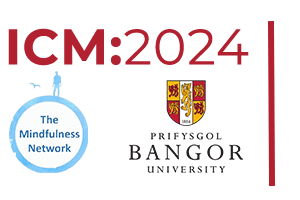Our aim is to make the 2024 International Mindfulness Conference as widely and easily accessible as possible, including welcoming neurodivergent meditators. Exploring neurodiversity brings new perspectives for practicing, teaching and researching mindfulness. In this blog, a neurodivergent member of our EDI advisory group answers questions on neurodiversity and explains our endeavours to create a neurodivergent-inclusive conference.
What does neurodiversity mean?
Neurodiversity refers to the range of natural diversity that exists in human neurodevelopment. The term originated within the neurodivergent community in the 1990s (Botha et al., 2024). People with the most common neurological profiles are referred to as neurotypical or neuromajority. People with less common profiles are referred to as neurodivergent or neurominority. A group that includes both neurotypical and neurodivergent people is called neurodiverse.

Neurodivergence is an umbrella term that encompasses neurologies such as autism, ADHD, dyscalculia, dyslexia, dyspraxia, OCD, Tourette’s syndrome and synaesthesia. In the same way that there is no such thing as a typical neurotypical, there is no such thing as a typical neurodivergent person: the experience and expression of neurodivergence is individual; it is common for a neurodivergent person to have a mix of different traits and a ‘spiky profile’; and we are just as influenced by our socialeconomic background, race, gender, disability, sexuality and other identities as people within the neuromajority.
The neurodiversity paradigm is based on two assumptions. First, that typical neurodevelopment is neither superior nor inferior to divergent neurodevelopment. The neurodivergent community – led by neurodivergent voices – is moving away from the medical model of ‘disorders’ and towards person-centred and biopsychosocial models (e.g., Whelpley et al., 2023). Second, that all people deserve to be treated with dignity and respect, independently of how they diverge from a putative norm. The neurodiversity paradigm is explicitly inclusive of all neurodivergent people, including those with the highest and most complex support needs and, increasingly, those who self-identify as neurodivergent due to waiting for, or issues accessing, safe diagnostic assessments.

